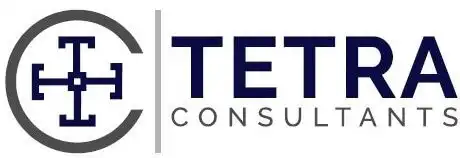California
Register S Corp in California: Is It the Right Business Structure for You?

Contact Us
- Proceeding to register S Corp in California is a great option for business owners who want tax efficiency and protection from liability. California, where the business culture is thriving, has more than 4.15 million small businesses, constituting 99.8% of all the businesses in California as of 2023. By opting to form a California business as an S Corp, business owners will be subject to pass-through taxation, thus avoiding double taxation on the firm’s level but still receive protection for personal assets in the form of limited liability. Additionally, California S Corps also has some tax benefits, including tax exemptions for not being required to pay franchise tax in their initial taxable year under certain conditions.
- California’s strong economy, which adds more than US$4 trillion to the U.S. GDP each year, is a top destination for startups and small businesses looking to expand. Setting up an S Corp is not as simple, however, and requires a series of steps involving the filing of Articles of Incorporation, the appointment of directors, and applying for S Corp status by submitting Form 2553 to the Internal Revenue Services (IRS). These procedures ensure federal and state compliance while one register company in California for success.
- In this article, we at Tetra Consultants will detail how electing an S Corp is in the best interest of new businesses and offer an overview of how this entity will benefit your business potential in California.
Why to register S Corp in California beneficial?
Pass through taxation
- S corporations are treated as pass-through entities for tax purposes, with profits, losses, deductions, and credits passing through to shareholders and being reported on their individual tax returns. This prevents the double taxation of C corporations, in which income is taxed at both the corporate and individual levels. For California start-ups, this can result in substantial federal tax savings. Furthermore, pass-through taxation makes financial reporting easier and decreases the complexity related to corporate tax returns.
Lower self-employment taxes
- Shareholders of the S corporation may pay themselves a fair salary subject to employment taxes (Social Security and Medicare). Further profits paid out in the form of dividends are not subject to self-employment tax, unlike in the case of LLCs. This can amount to huge tax savings for entrepreneurs.
Lower self-employment taxes
- Shareholders who are employees of the S corporation may compensate themselves with a fair salary subject to employment taxes (Social Security and Medicare). Extra profits paid out as dividends are exempt from self-employment taxes, unlike LLCs. This can lead to significant tax savings for small business owners. But it is important to make sure salaries are considered reasonable by the IRS to prevent reclassification of dividends as wages. This approach necessitates prudent financial planning to achieve maximum tax benefits while ensuring compliance.
Limited liability protection
- Similar to other corporate forms, S corporations offer limited liability protection to their shareholders. This protects personal assets from business liabilities and debts, providing entrepreneurs with peace of mind when launching their businesses in California. Limited liability protection is crucial in protecting personal wealth and minimizing the risk involved in business operations. It also improves credibility with lenders and investors, who perceive corporations as more stable entities.
Evasion of federal corporate taxes
- In contrast to C corporations, S corporations do not have to pay federal corporate tax on income. Shareholders instead pay taxes only on their individual income, decreasing the tax incidence on businesses that use this structure. This tax advantage is especially helpful for small companies or new companies that want to reinvest profit into growth projects instead of paying corporate taxes. S corporations are still required to file informational returns with the IRS to report income and expenses.
Lower franchise tax in California for new businesses
- Recently formed or established S corporations in California is exempted from franchise taxation in their first taxable year, if they satisfy conditions. Exemption offers relief from financial constraints to new enterprises at the inception, enabling them to invest additional capital in business operations and business strategies. Qualifying businesses are required to take measures to meet the state requirements for new firms, which are normally filing within a specified time period and crossing specified revenue marks.
Flexibility in profit distribution
- S corporations provide the ability to distribute profits among shareholders in a flexible manner without being bound by strict adherence to ownership percentages. This is beneficial for multi-owner businesses where owners contribute unequally to the operations or capital of the company. For example, a shareholder who contributes more to operations may be given a greater portion of profits even if their ownership percentage is less. This flexibility ensures that incentives are aligned with contributions and can create a more cooperative ownership culture.
Simplified conversion to C Corporation
- If a company intends to raise private equity capital or go public in the future, it is easier to convert an S corporation to a C corporation than an LLC. This makes S corporations a good option for startups with long-term growth plans. The process of conversion includes filing Form 2553 with the IRS to cancel the S election so that the company can be a C corporation. This structural flexibility is most important to firms expecting major capital inflows or public offerings.
Simplified ownership structure
- S corporations may have a maximum of 100 shareholders and only one stock class, with simple ownership without sacrificing the possibility of varied voting rights. Simplicity is favorable for small enterprises with few groups of ownership. The single stock class provision entails that all the shares must enjoy equal rights to dividends and liquidation proceeds but can have varying voting rights. This format assists in keeping things simple in decision-making processes and eliminates possible shareholder conflicts.
Credibility with investors and lenders
- Being an S corporation is more credible to potential lenders and investors than sole proprietorships or partnerships. The formal structure and financial transparency corporations are mandated to have made them more desirable to stakeholders. Investors tend to like the formal structure of a corporation because it implies greater professionalism and accountability. This credibility is important in order to secure funds or negotiate a good loan deal.
Tax deduction opportunities
- Shareholders are allowed to deduct business expenses such as health insurance premiums on their individual tax returns subject to certain conditions. This aspect makes S corporations attractive to entrepreneurs who want more tax advantages. For example, if S corporation covers the health insurance premiums of its employees, including shareholder-employees, these premiums qualify as business expenses that can be deducted. There are certain IRS rules, however, to make these deductions valid and in line with tax regulations.
Separate legal entity
- An S corporation is considered a distinct legal entity, and as such, it can contract, own property, and sue or be sued separately from its shareholders. This distinction enhances operational stability and legal position. It also ensures clarity in business dealing, since the contracts are entered into the name of the corporation and not specific shareholders. It is a legal distinction that is needed in the preservation of professional relationships with clients, suppliers, and partners.
Conformity with federal and state tax regulations
- California respects federal S corporation elections without the need for additional state-level filings, making compliance efforts easy for companies conducting business in the state. This conformity minimizes administrative efforts for entrepreneurs since they have to concern themselves with only federal tax compliance. S corporations are still required to file annual informational returns with the IRS and the California Franchise Tax Board, declaring income and expenses to meet state and federal requirements.
Conclusion
- To register S Corp in California with Tetra Consultants provides a smooth experience. We provide full-service solutions such as corporate bank account opening, nominee director and shareholder services, international trademark registration, legal drafting, registered agent services, and more. Our experience makes compliance hassle-free and sets your business up for success in California’s fast-growing market. Let us assist you in establishing a solid foundation and reaching long-term success.
- Contact us to know more about benefits to register S Corp in California and our team will revert back in 24 hours.
Tetra Consultants
Tetra Consultants is the consulting firm that works as your advisor and trusted partner in your business expansion. We tell our clients what they need to know, instead of what they want to hear. Most importantly, we are known for being a one-stop solution for our valued clients. Contact us now at enquiry@tetraconsultants.com for a non-obligatory free consultation. Our team of experts will be in touch with you within the next 24 hours.





